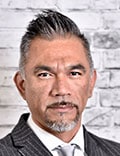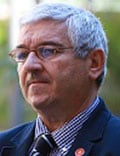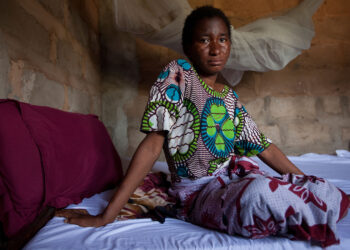With the world’s most grueling and prestigious cycling race — the Tour de France — in full swing, Medscape Medical News turned its focus to athlete burnout to ask: What can healthcare professionals learn from professional athletes?
In 2019, the World Health Organization’s (WHO’s) International Disease Classification, 11th Revision added burnout to its official compendium of diseases, categorizing it as a “syndrome” that results from “chronic workplace stress that has not successfully been managed.” The definition came into effect in 2022. Burnout, according to the WHO, is characterized by “feelings of energy depletion or exhaustion; increased mental distance from one’s job, or feelings of negativism or cynicism related to one’s job; and reduced professional efficacy.”
But professor of occupational health psychology at Birkbeck, University of London, London, England, Gail Kinman, PhD, said that to tackle burnout, it is crucial to distinguish and recognize it as a response to chronic workplace stress that hasn’t been managed, rather than as a disease.
“In healthcare, burnout has traditionally been seen as an inevitable cost of caring or, even worse, a badge of honor,” she told Medscape Medical News.
“Framing burnout as a disease can unintentionally pathologize normal human responses to excessive and sustained pressure. This risks reinforcing the idea that the individual is somehow deficient or needs fixing…Burnout [impacts] not only individual workers but also patients and teams and undermines the effectiveness of the healthcare system as a whole.”
Optimizing the Fatigue-Recovery Balance
As healthcare workers continue to push their physical and mental limits, professional athletes are trained to do so. But many go past the point of overtraining and overreaching to experience full burnout, just like healthcare workers who go past the point of emotional and physical exhaustion.
“Stage races like the Tour de France are among the most demanding competitions and are extremely stressful, physically and mentally, for athletes. Good performance in these competitions is the result of teams’ ability to optimize the fatigue-recovery balance of cyclists, including both leaders and other teammates,” Franco Impellizzeri, PhD, a former cycling coach and former head of research at the MAPEI Sport Research Centre, Varese, Italy, and current professor of sport and exercise science and medicine at the University of Technology Sydney, Ultimo, Australia, told Medscape Medical News.

It is a complex process, he said, where the one who makes the fewest mistakes comes out on top.
Professor of sport and health psychology at York St John University, York, England, Daniel Madigan, PhD, told Medscape Medical News that, despite increased awareness of burnout, it continues to rise among athletes.

“It is definitely something that takes second place over the emphasis on physiology, training, and overtraining,” he said.
“It leads to loss of motivation, reduced performance, worse physical and mental health, and can ultimately lead to dropout from sport. But athletes may not want to share their perceptions for fear of stigma associated with mental health.”
Burnout as a Symptom of Systemic Issues
Burnout, he said, manifests the same way in healthcare professionals: It affects their health, well-being, and performance, and can ultimately lead them to abandon their careers.
“I think being able to have more control over what you do and when is likely the most important factor — and for healthcare professionals, this is likely a function of their line managers and environment,” he said.
“It is [also important] to increase autonomy, enhance communication, and build psychologically safe environments, where mistakes can be made and opinions are valid.”
Kinman agreed, stressing it was not the responsibility of the individual to cope with challenging working conditions but rather to address systemic issues.
“Poor work-life balance is a key driver of burnout, as long shifts, being on call, and the inability to mentally disconnect from professional responsibilities can breed unhealthy rumination and impair physical and emotional recovery processes,” she said, adding that doctors particularly also struggle with perfectionism, something which is reinforced throughout their training.
“The real solution lies in addressing the systemic causes of stress, such as work overload, intensity, lack of autonomy, poor leadership, moral distress, inadequate support, and unhealthy organizational cultures that fail to prioritize psychological safety, which cause burnout to develop in the first place.”
“We have learned that burnout is best considered a gradual, dynamic process that unfolds over time…This is important because it highlights opportunities for early recognition and intervention when individuals are showing early signs of emotional exhaustion, detachment, and cynicism,” Kinman said.
It Takes a Team
Impellizzeri said greater awareness of burnout among sporting professionals has led to athletes and teams now employing a range of specialists to look after various aspects of well-being, including nutritionists, psychologists, and fitness coaches.
“Addressing the mental aspects and the factors that influence psychological responses are now integral parts of athlete management,” he said.
“Also, wearables and new technologies now allow the collection of more biometric data to monitor health status. From a scientific point of view, we definitely know more now, especially about the physiological effects.”

For former American professional cyclist turned coach for Empirical Cycling, which trains world tour teams and regional competitors, Kolie Moore, some of the most powerful interventions to manage workplace stress and prevent burnout are the simplest.
“Each profession has a different method of coping with or avoiding burnout that would be instructive for others. With our clients who are healthcare professionals, proper nutrition and hydration at work are not only keys to a good afternoon workout and quality sleep, but they seem to improve focus and alertness during the shift too,” he told Medscape Medical News.
“Monitoring step count and subjective stress levels per day can also give insights into energy expenditure and mental load. Tracking these over time…could give healthcare workers an idea about how much acute and chronic stress their jobs have, as long as the limitation of the choices going into the model are understood.”
But unlike professional cyclists who “often have agents and coaches to advocate for their best interests,” he stressed that such representation is missing for healthcare professionals, raising the question: Who is looking out for those who care for the sickest?
Pedro Manonelles, MBBS, international chair of sports medicine at Universidad Católica San Antonio de Murcia, Murcia, Spain, and former president of the governing board of the Spanish Society of Sports Medicine, said the pressure athletes and healthcare workers face to perform is similar, highlighting the importance of proper rest.

“Efforts should be made to develop realistic, yet positive, perceptions of competition in athletes. Reducing training loads and, in severe cases, complete rest from sports for weeks is often necessary — and same with psychological support,” he told Medscape Medical News.
Such advice is applicable to the healthcare world, where hospitals could work with staff to develop realistic workplans, better understand the impact of intense workloads, and provide more breaks throughout the day.
A Fading Flame
Professor of sports science at the University of Agder, Kristiansand, Norway, and one of the world’s leading minds in the science of endurance sports, Kerry Stephen Seiler, PhD, said a race like the Tour de France continues to highlight just how far athletes are willing to push, something that won’t be coming to an end anytime soon.
“The training loads are huge, the travel and camp schedule is extreme, the physical risks are to the point of life and death,” he said.
A few months ago, he was brought in to work with Australian Cycling, and at an event, he sat next to a recently retired South African cyclist. Their conversation inevitably led to one on risk and injury.
“I asked him what made him decide to retire. He told me that when his young son was pushing him around in a wheelchair, he decided it was no longer worth it. He was finished, and he did not want his children to have to do that anymore. Is that burnout? Well, the flame of competition fire fades out because a keen sense of mortality and perspective sets in.”
Kinman, Impellizzeri, Madigan, Moore, Manonelles, and Seiler reported having no relevant financial relationships.
Source link : https://www.medscape.com/viewarticle/workplace-burnout-lessons-professional-cycling-2025a1000ixz?src=rss
Author :
Publish date : 2025-07-17 10:31:00
Copyright for syndicated content belongs to the linked Source.













